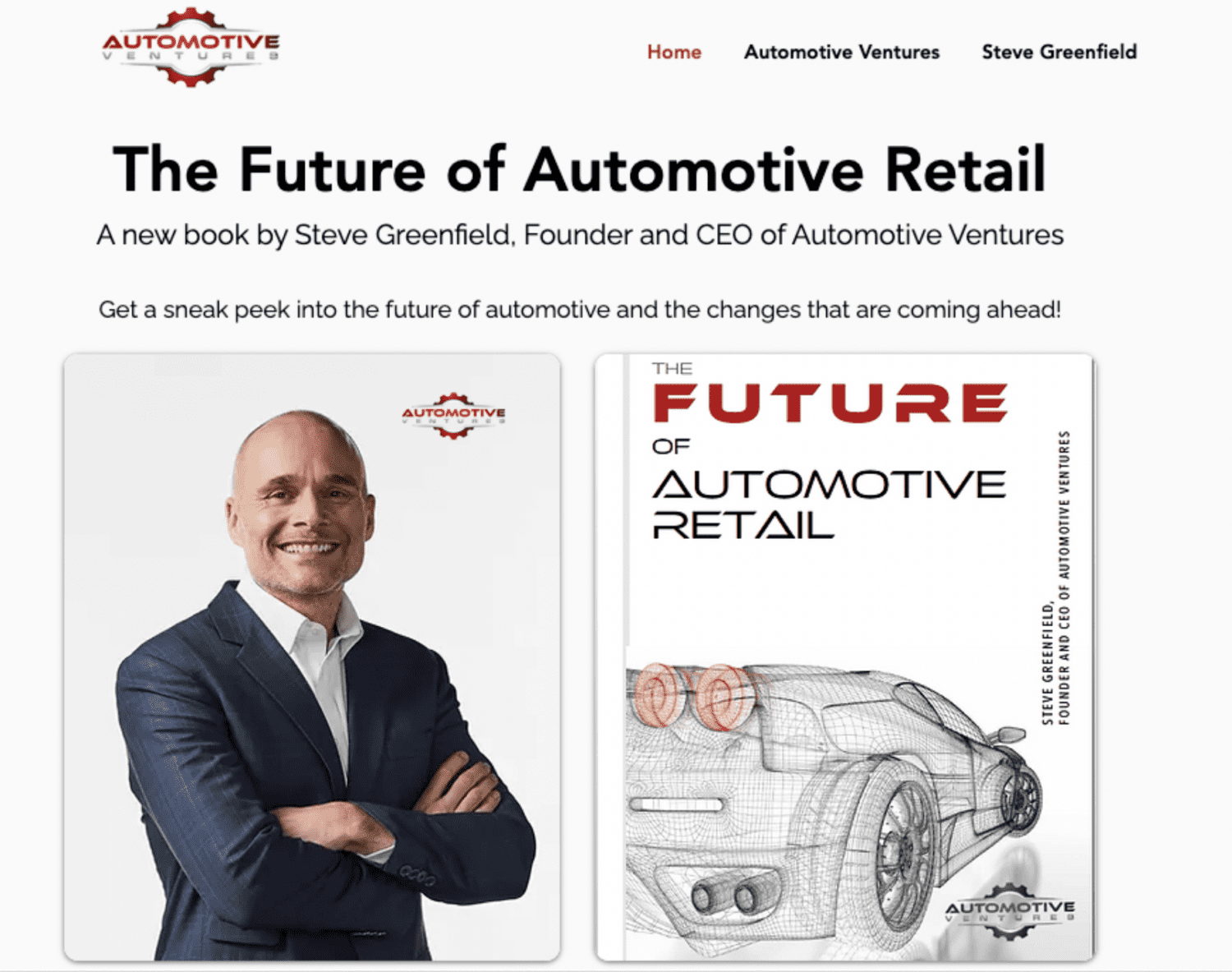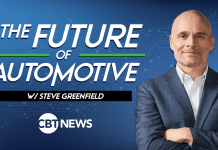Welcome to this episode of The Friday 5 with Steve Greenfield, Founder and CEO of Automotive Ventures, an auto technology advisory firm that helps entrepreneurs raise money and maximize the value of their companies.
The biggest news this past week relates to Lincoln Motor Company asking their dealers to commit to EV-related facility upgrades for EV models that have no forecasted delivery date.
Lincoln, after persuading dozens of its dealers to spend millions of dollars on facility upgrades, now says they have to invest $900,000 more on chargers and other upgrades in order to participate in selling future EVs.
The requirement, more than quadruple what rival Cadillac mandated for its dealers, will mainly cover the installation of EV chargers for public use as well as in-house sales and service needs.
Most Lincoln dealers also have Ford brand stores, which are separately required to make up to $1.2 million in upgrades to sell EVs. Stores must have separate chargers for the two brands, meaning a dealer who sells both, even if they’re dualed under one rooftop, might have to spend more than $2 million to sell EVs beyond next year.
The weirdest thing about this news is that Lincoln does not yet sell any battery-powered vehicles, and isn’t expected to for several more years. But Lincoln executives say that their dealers need to prepare now to attract a younger demographic of buyers who its research shows are demanding luxury EVs.
Lincoln’s approach is unique. They are dividing the network of 650 stores into two groupings, based on the size of their markets.
Dealerships in the top 130 markets must spend roughly $900,000 to install two DC fast chargers and 7 Level 2 chargers. Lincoln has 252 stores in those markets, which it says account for 90 percent of the brand’s sales.
The remaining 400 stores in smaller markets must spend about $500,000 for one DC charger and four Level 2s. Dealerships that make the investment required for their market will be allowed to sell an unlimited number of EVs.
Dealers have until Dec. 15 to make a decision on the EV certification program, which will run from late 2024 until 2026. Another enrollment period will open near the end of 2026 and start in 2027.
Those who choose not to opt-in can maintain their franchise by selling only gasoline models.
This news comes on the back of us reporting just last month that Buick has offered to buy out ANY of its US dealers who do not want to make the investments necessary — as the brand transitions to an ALL-electric lineup by the end of this decade.
And remember that it wasn’t too long ago that Cadillac told its 880 U.S. dealers that they would need to invest at least $200,000 each on electric vehicle chargers, tooling, and training to continue selling the brand’s vehicles beyond 2022. About 150 Cadillac dealers instead accepted buyouts last fall that ranged from $300,000 to more than $500,000 per location.
As of this month, there are 577 Cadilac dealerships in the US.
Interesting times. It’ll be very interesting to see how Ford and Lincoln dealerships make the choice to opt-in to sell EVs, but may be more telling to see how many opt to only sell ICE vehicles, going forward.
Companies To Watch
Every week we highlight interesting companies in the automotive technology space to keep an eye on. If you read my monthly industry Intel Report, I showcase a few companies each month, and we take the opportunity here on the Friday Five to share some of those companies each week with you.
Today, we have two companies to watch: Evenflow and LineBird.
EvenFlow
EvenFlow provides revenue optimization software for service departments.
They provide a scheduling widget that seamlessly integrates into dealer channels and DMS.
EvenFlow provides dynamic pricing, capacity management, and personalized service bundles for your fixed operations.
The results of using EvenFlow are meaningful to dealerships, who realize an increase in service profit of 10%.
The reason that I love EvenFlow is that appointment scheduling too often takes all comers or employs hard-coded rules, does not effectively differentiate between requests, and does not provide the desired price transparency consumers seek.
By not controlling the flow, dealerships risk under-utilized technicians in off-peak times and bottlenecks during peak periods leading to longer-than-expected customer wait times
Profit-destructive tactics like loaner cars and discounting are employed to protect customer satisfaction but still, dealerships lose 80% of their customers at the end of the vehicle warranty period.
You can check out EvenFlow at www.EvenFlow.ai.
LineBird
Linebird is powering grid resilience.
With its patent-pending Osprey NPS product, Linebird uses unmanned aerial systems to make direct contact with live power lines. They enable direct-contact live-line work on critical infrastructure and accelerate utilities’ data collection capabilities for grid maintenance and monitoring.
The reason that I love LineBird is they’re revolutionizing electric transmission line maintenance by applying drone technology to a dangerous and labor-intensive process to determine: How well a connection is working; Whether or not a line is degrading; and How much life span a line has left.
You can check out LineBird at www.LineBird.net.
——
The Future of Automotive Retail is now out!
The book is my attempt to provide the industry with a framework for the various threats and opportunities that are swirling and offer some practical advice on how best to navigate the next 5 to 10 years.
In the book, I make the argument that our industry is going to see more change in the next 10 years than it’s experienced in the past 100.
You can find the new book on Amazon or just go to FutureofAutomotiveRetail.com.
If you get a chance to read it, drop me a line and let me know what you think at steve@automotiveventures.com. I’d love to discuss it with you.

——
So that’s your weekly Friday 5, a quick wrap-up of the big deals in the automotive technology space over the past week.
If you’re an early-stage automotive technology entrepreneur looking to raise money, or an entrepreneur who is trying to decide whether and when they should raise money or sell their business, I’d love to speak with you.
Thank you for tuning into CBT News for this week’s Friday 5, and we’ll see you next week!
Did you enjoy this week’s episode of the Friday 5? Please share your thoughts, comments, or questions regarding this topic by connecting with us at newsroom@cbtnews.com.
Be sure to follow us on Facebook, LinkedIn, and TikTok to stay up to date.
While you’re here, don’t forget to subscribe to our email newsletter for all the latest auto industry news from CBT News.







